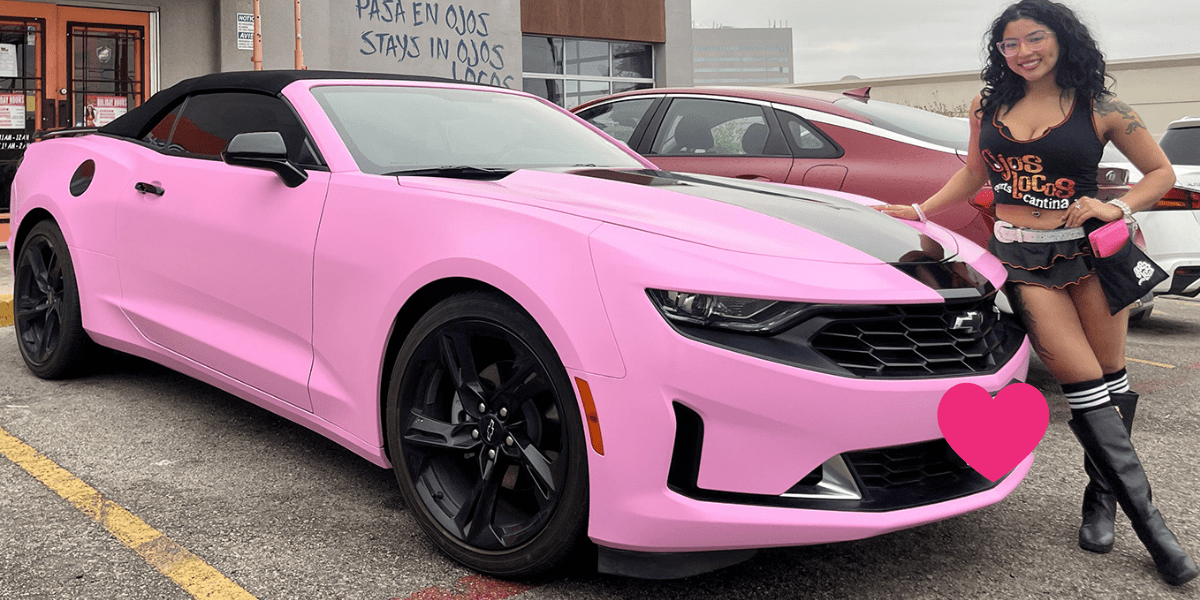The Science Behind Vinyl Wraps: How They Protect Your Vehicle
Vinyl wraps are more than just a way to make your car stand out—they’re a protective barrier that shields your vehicle from environmental damage and wear. While wraps are celebrated for their aesthetics, the science behind how they safeguard your vehicle is equally impressive. In this blog, we’ll dive into the fascinating technology of vinyl wraps and how they help maintain the integrity of your vehicle’s exterior.
How Vinyl Wraps Work
A vinyl wrap is essentially a thin, adhesive-backed layer of polyvinyl chloride (PVC) material. Once applied to a vehicle, it adheres to the surface, forming a durable shield against external elements. Modern wraps use advanced adhesive and coating technologies to ensure flexibility, longevity, and resistance to damage.
Components of a Vinyl Wrap:
- Base Layer (Vinyl Film): The main body of the wrap, which provides the color, design, and finish.
- Adhesive Layer: A specially formulated adhesive that bonds the wrap to the vehicle’s surface without damaging the paint.
- Protective Coating: High-quality wraps feature a top layer that resists UV rays, water, and scratches, ensuring durability and color retention.
Protection from Environmental Elements
1. UV Rays and Sun Damage
Vinyl wraps act as a sunscreen for your car, blocking harmful UV rays that can cause the paint to fade over time. The top coating on the wrap absorbs or reflects sunlight, preserving the vibrancy of your car’s paint.
- Fun Fact: Premium wraps, such as those from 3M and Avery Dennison, are engineered with UV-resistant materials that can reduce paint fading by up to 50%.
2. Minor Scratches and Scuffs
The vinyl material serves as a physical barrier, absorbing minor impacts that would otherwise scratch the paint. While it’s not a substitute for paint protection film (PPF) for heavy-duty defense, a wrap offers significant protection against everyday wear and tear.
- Real-World Example: Rocks, road debris, and branches that might leave marks on unprotected paint are often deflected or absorbed by the vinyl layer.
3. Protection from Chemicals
Road salts, tar, and other chemicals can corrode or stain your vehicle’s paint over time. Vinyl wraps shield the surface, preventing direct contact with these harmful substances.
- Bonus Benefit: If the wrap becomes stained or damaged, it’s far easier and more affordable to replace the wrap than to repaint the car.
4. Water Resistance
Vinyl wraps are water-resistant, helping to prevent rust and corrosion. This is especially beneficial in humid climates or areas where vehicles are exposed to heavy rain and snow.
Maintaining Vehicle Value
By protecting the original paint, vinyl wraps help preserve your vehicle’s resale value. A car with pristine factory paint is more attractive to buyers than one with chipped or faded paint.
- Reversibility: Wraps are removable, leaving the paint beneath untouched. This allows you to update your car’s look without committing to a permanent change or diminishing its value.
The Role of Technology in Modern Wraps
The evolution of vinyl wraps is driven by advancements in material science and digital printing:
- Durable Finishes: Modern wraps can replicate the look of premium finishes like matte, satin, or metallic paint while offering superior protection.
- Self-Healing Technology: Some wraps feature self-healing properties, where minor scratches disappear when exposed to heat, ensuring a flawless finish over time.
- Digital Printing: Custom designs, from photographic images to intricate patterns, are now possible thanks to high-resolution digital printing.
Comparing Wraps to Paint Protection Film (PPF)
While both vinyl wraps and PPF offer protection, they serve slightly different purposes:
- Vinyl Wraps: Focus on aesthetics and moderate protection, with endless design options.
- PPF: Designed primarily for heavy-duty protection, often applied to high-impact areas like the hood or bumper.
For maximum defense, some car owners opt for a combination of both—a clear PPF layer beneath a decorative vinyl wrap.
Caring for Your Wrap to Maximize Protection
To ensure your wrap provides the best protection, proper care is essential:
- Regular Cleaning: Hand wash your vehicle using a soft cloth or sponge and a vinyl-safe detergent.
- Avoid Harsh Conditions: Minimize exposure to prolonged sun, extreme heat, or abrasive materials.
- Professional Installation: A well-applied wrap adheres evenly and ensures complete coverage, enhancing its protective capabilities.
Why Choose a Vinyl Wrap?
Vinyl wraps combine form and function, offering a way to personalize your car while keeping it safe from the elements. Whether you’re looking to promote your business or simply protect your investment, wraps provide a versatile and cost-effective solution.
At MC Wraps Inc., we use cutting-edge materials and techniques to deliver wraps that not only look stunning but also shield your vehicle from harm. Contact us today to learn more about how we can help protect your vehicle with a custom vinyl wrap!


